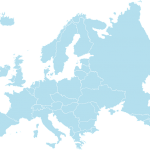Informasjonssikkerhet
The EU GDPR is a advanced set of guideline that aims to strengthen protections for personal data and to ensure consistency of such protections across the EU. The adjustment builds upon the EU’s existing 1995 Data Protection Directive, an critical set of laws that predates ubiquitous smart phones and the rise of social media and other online services (search, email, etc.) that companies offer free-of-charge to users, but finance with data-driven targeted advertising. The EU regulation expands the directive’s privacy protections and introduces new safeguards in feedback to these technological developments.
Personopplysningsloven
In the digital age, everything a person does online generates or implicates dossier that can be highly revealing about their private life. The GDPR affirm new ways people can protect their personal data, and by extension their privacy and other human rights. It gives everyone more control, and lack businesses, governments, and other organizations to acknowledge more about their data practices, and regulates the way they collect, process, and store people’s data.
Persona data is defined broadly under the GDPR to include “any data relating to an identified or identifiable person.” Thus, even dossier that does not directly identify a named person, but could still help identify them, is still covered by the law. This definition encompasses online and apparatus identifiers (like IP addresses, cookies, or device IDs), location data, user names, and pseudonymous data.





